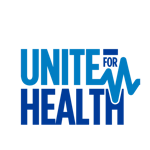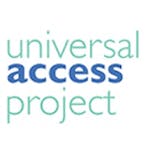A network of dedicated religious leaders, community health workers, and global partners have achieved what was once unthinkable: an African continent free of wild polio. It’s one example of how we are all safer and stronger when we #UniteforHealth.
Alhaji Muhammad Wada is a passionate believer in the power of vaccines. He’s seen how they can prevent diseases like polio spreading through communities like his in Nigeria, paralyzing children. Until 2012, Nigeria was home to more than half of all polio cases in the world. But when we first encountered Wada, wearing his white robe and turban and sitting in front of a colorful mural in Kano, he had reason to be quietly optimistic. At that point Nigeria had recorded three straight years of no cases of wild polio. And in August of this year, despite the global COVID-19 pandemic, Wada’s optimism and hard work paid off: The World Health Organization (WHO) declared Africa polio-free for the first time ever.
Wada embodies the idea of working together to deliver stronger, safer, healthier communities. He is one of more than 30 religious and traditional leaders in Kano state working with international partners to eradicate wild polio. And leaders like Wada are not alone. They’re joined by a network of volunteers — all women — who serve as trusted community ambassadors of sorts, traveling from household to household telling people about immunization and administering the polio vaccine as drops under the tongue. The volunteers are crucial for immunization programs to succeed because they have personal relationships and trust in local communities.
“We live with them, we talk with them,” Wada says of the relationship between leaders, volunteers, and the public. “They respect us, we respect them.”
Typically volunteers are women between 20 and 50 years old, well known and well respected in their communities, and with useful local knowledge. Those who sign up and are selected complete training led by UNICEF. They learn how to spot signs of the disease, how to communicate with people about it in the best ways, and even about data management to track cases — and progress.
And there has certainly been progress. To date, 4.4 million children in Nigeria under the age of 5 have been vaccinated, according to UNICEF, one of the key agencies involved, and the world’s largest vaccinator of children against disease.
Because of the success vaccinating vulnerable children, what began as a community of volunteers to fight polio has since evolved into an effective and integral part of Nigeria’s rural health care system, helping strengthen the health infrastructure that underpins a community’s ability to thrive. Volunteers now cover a wide range of health topics during their household visits to keep families safe and healthy. They educate households on sanitation and hand-washing, the importance of prenatal care, the advantages of breastfeeding, and how to treat child malnutrition with therapeutic foods. They’re even trained to spot signs of emerging health threats like Ebola, and now are working to educate communities about COVID-19.
There is still much more to do. Despite Nigeria’s economy — the largest in Africa — and its vibrant, bustling cities, there are now more people living in extreme poverty there than in any other country, and the nation barely has one doctor for every 5,000 people. But the grassroots work of elders like Wada and the community volunteers shows that working together helps make everyone stronger, starting with the most vulnerable, just a few drops at a time.
We are all safer and stronger when we #UniteforHealth. Support the UN Foundation’s work to deliver health for all.



 View All Blog Posts
View All Blog Posts


